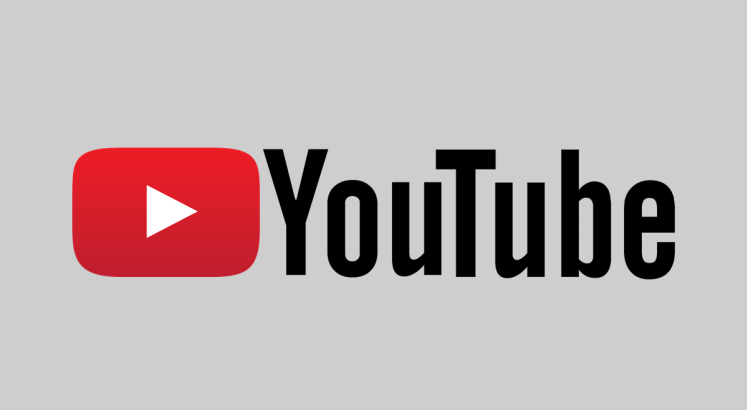Friday, 11 November 2016
Monday, 7 November 2016
Sunday, 6 November 2016
How to Prepare for Interview
Tips to crack tricky questions
Do you wonder that despite a good resume why you haven't landed a good job?
Most likely the problem lies with you and not with your resume. It's not always that your resume gets you the dream job. It also depends how well you manage the interview part, especially the 'tough and tricky' questions.
Most likely the problem lies with you and not with your resume. It's not always that your resume gets you the dream job. It also depends how well you manage the interview part, especially the 'tough and tricky' questions.
1. Don't blame others
There are many tough questions that put pressure on you or create stress. What if you are asked: "Why did you leave your last job?", or "Why have you had so many jobs?" If you say your last boss was an idiot, or all your jobs have been terrible, you'll be seen as someone who blames others and fails to take responsibility for your own actions and decision.
Moreover why would employers want to employ someone who doesn't take responsibility and come up with answers, not problems? Employers don't want to employ people who blame others.
"Always express positive reasons and answers when given an opportunity to express the negative. Never blame anyone or anything else," says Amy Lightfoot who teaches 'Interview skills' as part of Spoken English at British Council India, Delhi.
"I was ready for more challenge", or "Each job offered a better opportunity, which I took...," such responses are better.
2. Sell yourself
Remember, the job interview is a platform to market yourself. It is a strategic conversation with a purpose. Your goal is to persuade the employer that you have the skills, background and ability to do the job and that you can comfortably fit into the organization and its culture.
3. Keep your praise & observations credible & realistic"
The best technique to handle such question is to praise your past employers. However, keep your praise and observations credible, realistic and relevant. Try to mention attributes that your interviewer and prospective new employer will identify and agree with. This will build association and commonality between you and the interviewer, which is normally vital for successful interview outcomes," explains Lightfoot.
However, there can be real tough ones: "Why should we appoint you?" or "What can you do for us that other people cannot?"
Nevertheless, Shiv Khera author of bestseller "You Can Win" explains, "Candidate has a choice here as to how to play this: he can either go for it strongly, re-stating his relevant strengths -- behavior, experience and skills, or he can quietly confidently suggest: I don't know the other applicants, so it would be wrong for me to dismiss their claims. However, I am sure that I have all the main attributes the role requires, which, combined with determination and positive approach, should ensure that I'd be a very good choice."
4. Be positive
He further says that the candidate should be positive in saying, "I don't know the other applicants, but generally I excel at..." and pick up strengths that most fit with what they're seeking.
5. Maintain calmness
Most of the candidates fail due to fear and tension. Rajeev Vaid, CEO, Smart Hiring, Delhi says, "A candidate's resume may be good, he may have good IQ but a successful interview depends also on emotional quotient. How well he handles the pressure questions. However, one should maintain calmness even if the interviewer howls."
6. Do your homework well
The only way to handle such situation is to be confident, credible and constructive (accentuate the positive) in your answers. And more important is 'preparation for the interview'. Plan and rehearse your 'verbal resume'. You will almost always be asked, "Please tell us about yourself," so be prepared with a good response, tailored to the job at hand. Prepare a written list of likely interview questions and job requirements. Prepare key points you need to make to demonstrate your specific accomplishments in each area.
1. Why did you leave your last job?
2. Why have you had so many jobs?
3. Why do you want this job?
4. What qualities do you think are required for this job?
5. Why should we appoint you?
6. What can you do for us that other people cannot?
7. What can we offer you that your previous company cannot?
8. What are your greatest achievements within and outside the workplace?
9. What are your great strengths and weaknesses?
10. How has your experience prepared you for this position?
If you are asked what questions you have, and you don't have any, the interviewer may get the impression you haven't done your homework, or aren't seriously interested in the position. Prepare your questions in advance and phrase them to demonstrate your insight and ability to handle the position. "Often, the most successful applicants are those who simply out-work their competition," points out Khera.
7. Communication is the key skill
Develop your verbal communications skills. Having great management or technical skills and a strong record of accomplishment is not helpful if you can't verbally convey you successes.
8. Answer questions directly
Then elaborate with examples. Choose examples that highlight past successes and relate it to the projects or issues that interviewer is facing, but avoid excessively lengthy responses. The purpose of tough interview questions is to encourage interviewees to think about themselves and to give the interviewer clear and revealing information as to the interviewee's suitability for the job. One key to success is to use every means at your disposal to develop effective interviewing skills, including selective presentation of your background, thoughtful answers to typical interview questions, well-researched questions about the organization, and an effective strategy to market yourself. There is no magic to interviewing. It is a skill that can be learned and developed with practice.
INTERVIEW : Interview is Casual.If you have done excellently well in the test , your interview process is very simple and a walkthrough if you have good communication skills ( Speak clearly, frankly). My Interview Panle consisted of one Madame and one Sir. They asked me abt Team Wokr, Abt my College, Abt my family, My hobbies, My interests, Certain changes i would like to bring out in the current socio-economic development (I said to remove unemployment).I was nto asked any puzzles in my interview. But I do have a list of puzzles that coudl be possibly asked. I would post them too on this forum . Interview was very friendly . You are free to ask the panel your performance and expectation of your order. Be positive. Thats a very very big Point in your HR interview.My friend had a stress interview. Be cool, Dont react.
Pls do mail me in case you have any doubts. Also mail me if this post has helped you become an Infosion. I would be very happy if his post has helped few fellow Infosions out there . pls do lemme know if you do get selected. You can also add me in your messenger. I will be online everyday, and u can send me offlines to clarify certain doubts
How to prepare for Interview ?
Question : Tell /Describe about yourself ( you will be asked this 90% )
Answer : Don't recite your resume. Tell about your education, experience, projects worked ,passion etc.,Make sure you complete this within 2-3mins.
Answer : Don't recite your resume. Tell about your education, experience, projects worked ,passion etc.,Make sure you complete this within 2-3mins.
Q: Why should we hire you into our organization
A : This would be perfect time to tell about your strengths,achievements & assets. Compare your profile with the job role & justify that you will be a best fit for the job. Answers like ‘This is a best company’ , ‘I want a job in this field’ wont impress the interviewer.posted at
Q : What are your strengths & weakness ?
A: Again this is also a commonly asked question to test how much you know of yourself.Make sure the Strengths you say have some relation to the job you applied.’I am very good in english’ can be said as ‘I have good communication skills’ ,
Weakness - ‘I don't have any weakness’ means you are not ready to talk about it.Similarly don't say something like, ‘Im short tempered & get angry very soon’ – It gives an impression that you are not fit to work in group.Say something which does not affect the working & also describe about the steps taken to overcome that.
Q: Where do you see yourself after 5 years ?
A: This question would be asked to check how much you know about the career path. ‘After 5 years,I want to be in your seat’ wont work in any case.Think realistically, understand the growth opportunities of that job & put it across to them.
Q : Why are you shifting from your current employer/company (for experienced people)
A : This would be a tricky question & you have to answer by choosing proper words.Give the real reason, but make sure you don't put the blame on your previous company nor onto yourself.
A : This would be a tricky question & you have to answer by choosing proper words.Give the real reason, but make sure you don't put the blame on your previous company nor onto yourself.
These are just few questions that can be asked during an Interview ,but the list is exhaustive.So be prepared to answer any question with confidence.But , Never ever get tensed – It pulls your confidence down & will throw you out of the competition.
Share:















